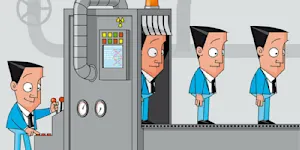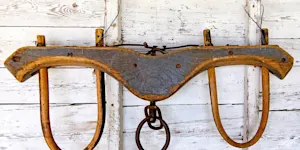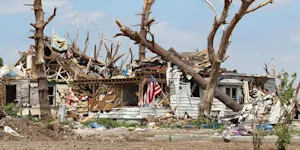What Makes This Word Tick
Ah, "trestle"! It evokes images of sturdy structures holding up railways and bridges. Not just any support, but a dependable one, often made of wood or steel, designed to carry heavy loads above ground level. Picture the iconic train tracks crossing vast landscapes, all thanks to these unsung heroes of architecture.
If Trestle Were a Person…
Imagine Trestle as your no-nonsense uncle who always has tools in his garage and DIY tips at the ready. Reliable and down-to-earth, he'd be the kind of person who helps everyone in the neighborhood fix a wobbly porch or hang a swing in the garden. Always supportive, yet never seeking the spotlight.
How This Word Has Changed Over Time
Originally, "trestle" referred to a simple framework used to support a flat surface, such as a dining table. Over time, its meaning expanded to describe complex bridge supports, especially in engineering and construction. While tables may not need trestles as much these days, the word retains its essence of bearing weight.
Old Sayings and Proverbs That Use Trestle
While there aren't many age-old adages featuring "trestle," you might appreciate its concept in the saying, "Bridges are for crossing, not for building barriers." A nod to the trestle's role in creating connections rather than divisions.
Surprising Facts About Trestle
Did you know some of the longest and oldest trestle rail bridges are still in use today? Built in the late 19th century, these structures continue to serve railways, a testament to their robust design and engineering.
Out and About With This Word
Planning a train trip? You might cross a trestle without even knowing it! These structures can often be found spanning valleys and rivers, quietly doing their job while you enjoy the scenery.
Pop Culture Moments Where Trestle Was Used
Trestles occasionally make cameo appearances in films, usually in dramatic chase scenes involving trains. The suspense of a train barreling over a creaky old trestle adds extra thrill to any Hollywood blockbuster!
The Word in Literature
In literature, trestles appear in historical novels or Westerns, setting scenes of adventure across rugged terrains. They're not just plot devices but symbols of human ingenuity conquering nature's challenges.
Moments in History with Trestle
The expansion of railroads in the 19th century dramatically relied on trestle bridges, particularly in the American West. These structures played crucial roles in connecting coasts and fostering economic growth, shaping the nation’s development.
This Word Around the World
While "trestle" as a concept is pretty universal, each culture has its own structural ingenuity. For instance, in parts of Asia, elevated train tracks supported by concrete piles are the modern equivalent of a traditional trestle bridge.
Where Does It Come From?
The word "trestle" has its roots in the Latin word "transtrum," which means a crossbeam. It evolved through Old French into Middle English as "trestel," signifying a surface or support that stretches across.
How People Misuse This Word
Sometimes "trestle" gets confused with "truss," another structural component. While trusses are part of a roof or bridge framework, trestles specifically refer to the supporting structure beneath tracks or elevated pathways.
Words It’s Often Confused With
Truss: A framework, typically for roofs or bridges.
Table: Sometimes used when referring to a trestle table, which is a different concept.
Bridge: While a trestle is part of a bridge, it is not the entire structure.
Additional Synonyms and Antonyms
Synonyms include "support," "brace," and "framework." Antonyms might be "collapse" or "unstable."
Want to Try It Out in a Sentence?
"As the train crossed the valley, it traversed a towering trestle bridge that provided an impressive view of the river below."
















